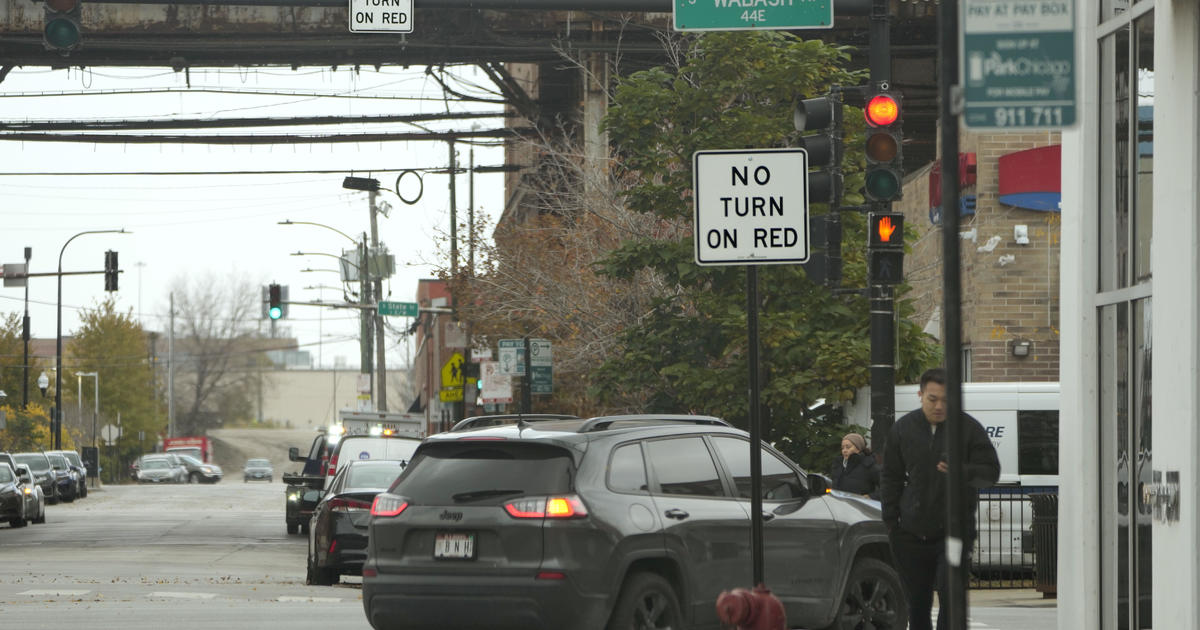Sophee Langerman was on her way to a bicycle safety rally in Chicago’s Lakeview neighborhood in June when a car turning right rolled through a red light and slammed into her bike, which she was walking off the curb and into the crosswalk.
The car was moving slowly enough that Langerman escaped serious injury, but the bicycle required extensive repairs. To Langerman, it’s another argument for ending a practice that almost all U.S. cities have embraced for decades: the legal prerogative for a driver to turn right after stopping at a red light.
A dramatic rise in accidents killing or injuring pedestrians and bicyclists has led to a myriad of policy and infrastructure changes, but moves to ban right on red have drawn some of the most intense sentiments on both sides.
Washington, D.C.'s City Council last year approved a right-on-red ban that takes effect in 2025. New Chicago Mayor Brandon Johnson’s transition plan called for “restricting right turns on red,” but his administration hasn’t provided specifics. The college town of Ann Arbor, Michigan, now prohibits right turns at red lights in the downtown area.



My own anecdotal evidence, walking several blocks and crossing a busy intersection everyday.
I take attempts to not get hit by looking at the driver and checking to see if they are paying attention. Often a driver will inch forward until they can time turning between cars coming from the opposite side of the intersection or will turn immediately when the light changes. I often have people who wait, but mostly people will just drive past me while I stand waiting to cross.
Car size doesn’t seem to make any difference in how aware the driver is or if they are following driver safety, at least when I’m attempting to keep myself from being hit.